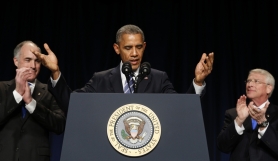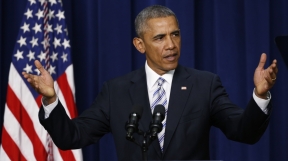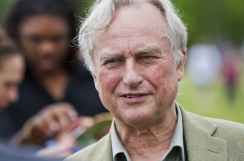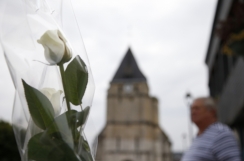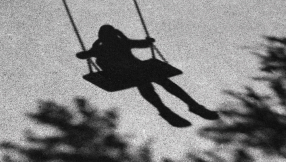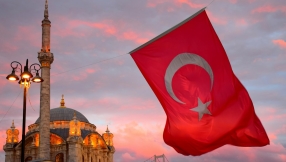Pope Francis is in Krakow for World Youth Day. As well as the hundreds of thousands of young people gathered there, he's also been able to meet Polish bishops and try to convince them to take on board his message of love and charity toward refugees; an uphill struggle in a country profoundly lukewarm toward the whole business.
But it was a few sentences he spoke aboard the plane on the way that grabbed the media's attention. Referring to terrorist attacks, he said the world is "at war": "We should not be afraid to speak this truth. The world is at war because it has lost peace."
A few minutes later, after an adviser spoke to him, he took the microphone again and added he was not referring to a war of religion. "There is a war of interests. There is a war for money. There is a war for natural resources. There is a war for domination of peoples. This is the war," he said. "All religions want peace. Others want war. Do you understand?"
Well, yes. And telling the world that Islamist terror is not fundamentally a war between Islam and Christianity is a good and necessary thing to do. In spite of the frequent targeting of Christian priests and churches in Iraq and Syria – and now in Normandy – the overwhelming majority of Islamist victims are other Muslims.
But when he says "all religions want peace", is it quite as simple as that? Probably not.
Because it all depends on who defines your religion. In Catholicism – uniquely among world faiths – it might seem relatively simple, because there is one person at its head, and he is a fervent apostle for peace. But he is not a free agent, able to make doctrine up as he goes along – an accusation frequently levelled against him by traditionalists. He is located in a complex set of traditions, some of them rather hostile toward him personally and certainly towards his message of peace and love – and many of them to be found among the Polish bishops, nostalgic for the glory days when the pope really was one of their own.
Besides, the pope doesn't speak for all Christians. And there is no central authority for Muslims, Hindus, Jews or Buddhists at all. They look to their scriptures and their traditions, as they're interpreted by preachers, teachers and theologians. In all of them, as Francis says, there's a strong witness to the desirability of peacemaking. But examples of truly pacifist faiths are very, very rare. For most religious people, the question is not, "Should we use violence?" but "When should we use violence?" There are complex moral judgments around the balance of duties to the state and to the faith, questions of national identity and personal prejudices, and the underlying human propensity for solving problems by force.
So to say "all religions want peace" is true as far as it goes, but that isn't very far. Some religious people don't want peace at all. Some of the language used in religious scriptures – Christian and Muslim – is not peaceable and lends itself to a justification of violence. There are structural issues biasing religion to violence against particular groups, like the way some of the New Testament talks about Jews.
Every religion has its own issues with violence, almost always with a nationalistic edge to it. Buddhist nationalists use violence in Sri Lanka and Myanmar. It doesn't mean they aren't Buddhists. Hindus persecute Christians in India. They are not less Hindu. Muslims persecute other Muslims, Christians and Yazidis in Iraq and Syria. They're still Muslims. The countries where Christianity has been the dominant faith have largely outgrown the desire to persecute in the name of religion, but that doesn't mean we have a free pass: we too have spilt innocent blood in the name of Christ. And the rhetoric about the "other" in the US, and to a lesser extent post-Brexit UK, often with a religious tinge, should caution us against thinking it just isn't a problem for us any more.
The most honest thing Christians can do about violence and religion is to admit that if you look for ways to justify it in your faith you can probably find them. So no, it isn't enough to say "all religions want peace". The good people do. But they have to be constantly vigilant against the haters, those who want to pervert faith so that it becomes poison, breeding hatred, contempt, discrimination – and, in the end, violence. And that's why any attempt to turn the death of Fr Jacques Hamel, or the many deaths of Syrian and Iraqi Christians, or of Nigerians or Pakistanis – all, as it happens, at the hands of Muslims – into a pretext for religious warfare have to be utterly rejected. The peaceableness of religion is not a given. It has to be fought for, every day, with passion, commitment and vigilance.
Follow Mark Woods on Twitter: @RevMarkWoods










